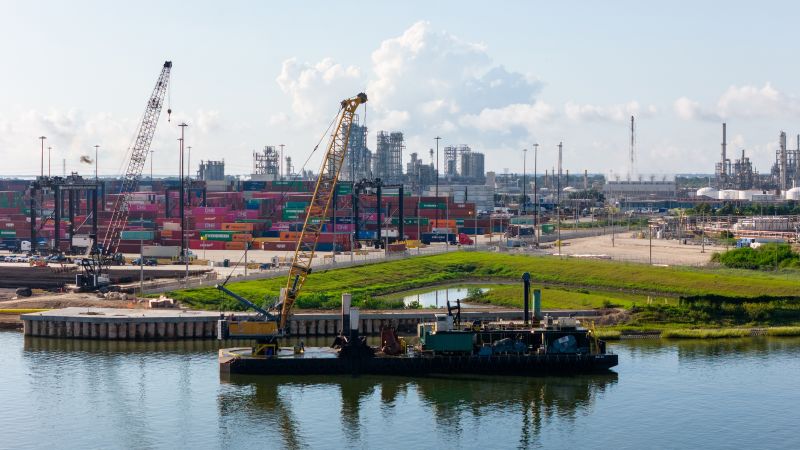
Time running out to avoid crippling US port strike
CNN
Time is running out to avoid a work stoppage at ports along the entire East and Gulf coasts that what could become the most disruptive strike to the US economy in decades.
Time is running out to avoid a work stoppage at ports along the entire East and Gulf Coasts in what could become the most disruptive strike to the US economy in decades. Members of the International Longshoremen’s Association are set to go on strike at 12:01 am ET Tuesday at three dozen facilities spread across 14 port authorities. There were few signs that a deal could be reached by the deadline set by the ILA and the United States Maritime Alliance, which uses the acronym USMX. But in a Monday evening statement, USMX said it requested an extension over the current contract and increased its offer, lifting wages nearly 50 percent over the life of the contract, and said both sides moved off their previous positions. The maritime alliance represents the major shipping lines, all of which are foreign owned; as well as terminal operators and port authorities. That offer of a 50% wage increase by USMX was deemed “unacceptable” by the union earlier today. However, the union’s demand on wages came down from their previous ask of a five dollars an hour annual increase in pay, said a source familiar with the negotiations. The strike, which would be the first at these ports since 1977, could stop the flow of a wide variety of goods over the docks of almost all the cargo ports from Maine to Texas. This includes everything from bananas to European beer, wine and liquor, along with furniture, clothing, household goods and European autos, as well as parts needed to keep US factories operating and American workers in those plants on the job. It also could stop US exports now flowing through those ports, hurting sales for American companies. Depending on the length of the strike, there could be shortages of consumer and industrial goods, which could then lead to price hikes. It would mark a setback to the economy, which has shown signs of recovery from pandemic-induced supply chain disruptions that resulted in a spike in inflation.

Travis Tanner says he first began using ChatGPT less than a year ago for support in his job as an auto mechanic and to communicate with Spanish-speaking coworkers. But these days, he and the artificial intelligence chatbot — which he now refers to as “Lumina” — have very different kinds of conversations, discussing religion, spirituality and the foundation of the universe.





















 Run 3 Space | Play Space Running Game
Run 3 Space | Play Space Running Game Traffic Jam 3D | Online Racing Game
Traffic Jam 3D | Online Racing Game Duck Hunt | Play Old Classic Game
Duck Hunt | Play Old Classic Game










